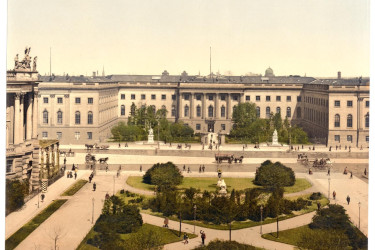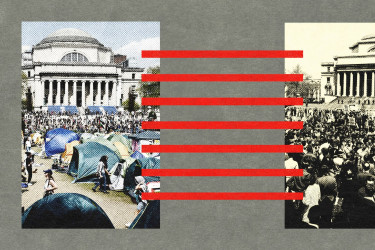Collection
Free Speech on Campus
For well over a century, Americans have been arguing over the extent to which political speech should be protected or restricted on college campuses. This collection gathers some recent writing on the twists and turns of that history.
Writing in 2017, Todd Gitlin — one of the most prominent student activists of the 1960s — rejected the notion that free speech was under more threat on contemporary campuses than it had been in the past. “Golden ages only show up in rearview mirrors, and even then, objects may be farther away than they appear.”








